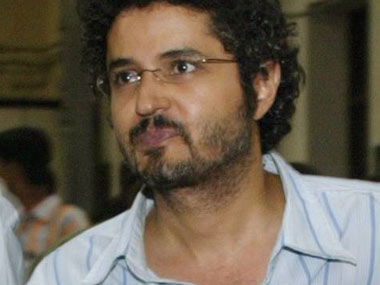The beginning of Kaizad Gustad’s love affair with cinema reminds one of Salvatore Di Vita, the protagonist of the Italian postmodernist classic Cinema Paradiso. Like Salvatore’s, Gustad’s childhood was spent in a small village, Wadi in Karnataka, where his family owned several movie theatres. It was in these theatres that he forged his crucial bond with the medium before eventually studying film at New York University. In 1998, Gustad made his feature film debut with Bombay Boys, a black comedy caper that in hindsight now appears to have paved the way for films like 2011’s Delhi Belly. He followed this up with the much-hyped Boom in 2003, a critical and commercial disaster, famous for introducing a nubile Katrina Kaif to Indian audiences (and infamous for this scene). A re-watch of these films reveals a sensibility that was somewhat ahead of its time in terms of storytelling, dialogue, in-your-face sexuality and characterization, even if the films themselves were deeply flawed (inconsistent to plain-bad acting, jerky editing and sloppy plotting). However, Gustad’s evolution as a storyteller was soon to be marred by tragedy. On May 25, 2004, a crew member named Nadia Khan was hit by a train and killed while he was shooting a now-shelved film called Bombay Central on the train tracks at Mahalakshmi station in Mumbai. It was alleged that Gustad tried to pass it off to the authorities as a road accident. Subsequently, he was arrested on the charges of manslaughter, negligence and fabrication of evidence. [caption id=“attachment_1285491” align=“alignright” width=“380”]  The beginning of Kaizad Gustad’s love affair with cinema reminds one of Salvatore Di Vita. Reuters[/caption] Out on bail, he made Bombil and Beatrice, which he refers to as an “arthouse reincarnation drama.” It premiered at the Cannes Film Festival in 2007, but was never released for Indian audiences. In 2010, four years after the tragedy, his legal troubles resurfaced: he was found guilty of committing a rash and negligent act and was sentenced to a month in jail. Three years later, Gustad has put his troubles behind him and is all set with his first offering in a decade, Jackpot, a crime caper he describes as “a roller-coaster ride.” The film stars Sunny Leone and Naseeruddin Shah. Here are excerpts from a conversation with him: What is Jackpot all about? Jackpot is my homage to the film noir genre. It has an intricate plot, much like a jigsaw puzzle that needs to be solved by the viewer. There’s a plot within a plot within a plot within a plot, there are guns, there’s a femme fatale (Sunny Leone) and a street-smart protagonist (Sachiin J Joshi). There’s also Naseeruddin Shah, playing a don who’s 10 times more whacked out than Mastana (his character in Bombay Boys), so that’s going to be a lot of fun. Your films reveal a pastiche of influences, with Guy Ritchie being one of the more obvious ones. Who are you most influenced by? You know, the funny thing is I barely watch films. I am more influenced by the stories I hear in real life, through friends, people I meet, through books or articles I read or by travel. I don’t find any inspiration in other people’s films. If you’ve noticed, you’ll see that I have written and directed all my films. There has to be a good story, which comes from my head. Thanks to all that I assimilate, I have enough interesting stuff going on in my head, so why would I be inspired by anyone else? Your last film, Boom, was not appreciated by audiences. What do you think went wrong? Firstly, I don’t think that’s true. Boom was the event-film of 2003; it was hotly anticipated. Despite being such a risky film by Bollywood standards, it went on to garner one of the biggest openings of that year. So, really, I have no regrets, except in hindsight I think I may have tried to push too many boundaries too early. It was a little ahead of its time – I think if it released today it would be received far more positively. Three of your assistant directors from Bombay Boys – Apurva Lakhia, Reema Kagti and Zoya Akhtar – have gone on to become recognised mainstream filmmakers. Meanwhile, the face of Indian cinema has changed quite a bit over the last decade. Where do you see yourself in this pecking order? You know, it’s a matter of huge pride for me that these three started their journey with me and are now doing so well. But honestly, I don’t like giving tags like ‘alternative’ or ‘offbeat’ to films. What we’re really doing as filmmakers is giving viewers a two-hour memory to take home with them. These classifications – single-screen and multiplex – don’t make any sense. You have to tell audiences a good story, entertain them and give them a good memory. I see myself simply as an entertainer, except I make my films the way I want to make them. How have your legal troubles over the past ten years affected you? Is it something that has influenced your filmmaking? Look, honestly, that is something I’d rather not talk about. It’s all in the past and I have paid my debt. All I can say is I’m looking forward to the future, making films – two a year, if I can manage it – and spending time with my family. Jackpot releases in theatres today.
Gustad has put his troubles behind him and is all set with his first offering in a decade, Jackpot, a crime caper he describes as “a roller-coaster ride.”
Advertisement
End of Article


)
)
)
)
)
)
)
)
)



